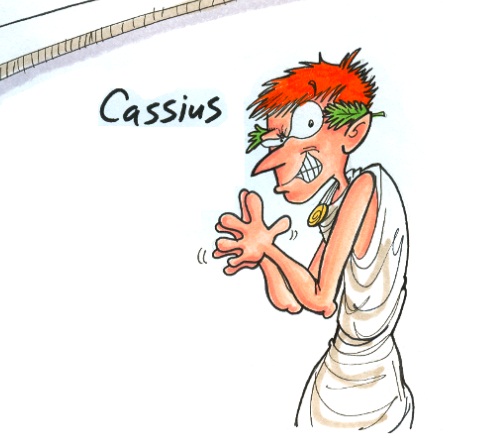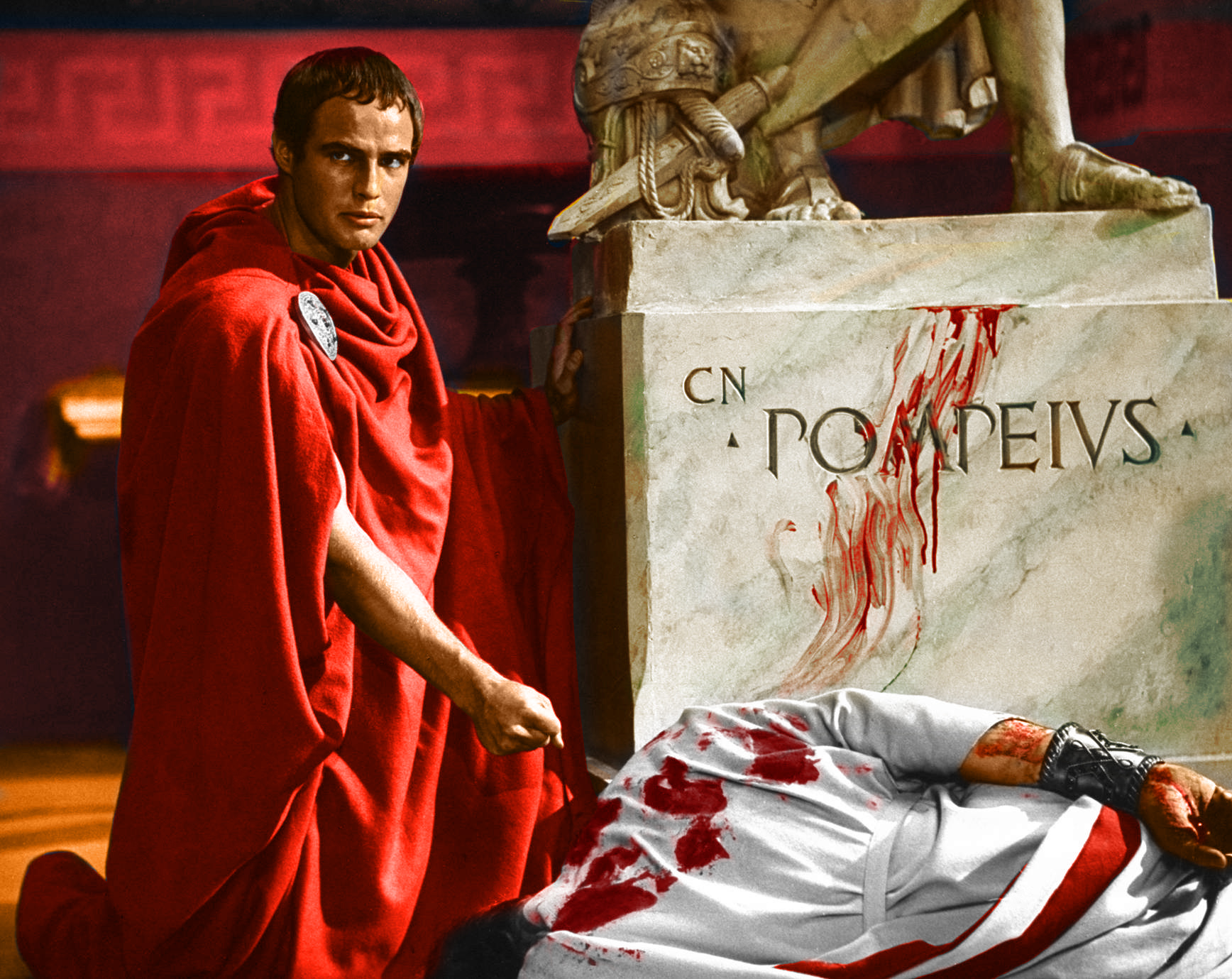
In Rome’s Last Citizen: The Life and Legacy of Cato, Caesar’s Mortal Enemy, authors Rob Goodman and Jimmy Soni underscore Cato’s implacable resistance: Caesar even ordered Cato dragged from the Senate in the middle of one of his orations, whereupon another senator declared, according to historian Cassius Dio, that he “would rather be in jail with Cato than in the Senate with Caesar.” Caesar eventually got the job, but while in office, Cato vexed him more than any other senator. He filibustered for hours on end to prevent a vote on Caesar’s bid to attain Rome’s highest office, the consulship. He saw in the ambitious, power-hungry general a mortal threat to the republic and tried to block his every move. It was Cato’s fierce and relentless opposition to Julius Caesar that made him most remarkable. It was a tactic he hoped would be temporary, but it ultimately failed, becoming the only blot on an otherwise virtuous and principled public career. The one time he compromised on this issue was when he supported an expansion of the dole as the only way to prevent a demagogue named Julius Caesar from coming to power. Cato saw the debilitating effect such cynical demagoguery was exacting from the public’s character and opposed it at first.
Cato the younger vs gaius julius caesar free#
Politicians were buying elections with expensive promises to distribute free or subsidized grain. Since the days of the Gracchus brothers (Gaius and Tiberius) in the previous century, more and more Romans were voting for a living to replace or supplement having to work for one. Through his superb oratory in public and deft maneuverings in private, he worked tirelessly to restore fealty to the ideals of the fading Republic.

Later he served in the Roman Senate, where he never missed a session and criticized other senators who did. He went out of his way to hold previous quaestors accountable for their dishonesty and misappropriation of funds, which he himself uncovered. He first won election to public office (to the post of quaestor, supervising financial and budgetary matters for the state) in 65 BC and quickly earned a reputation as scrupulously meticulous and uncompromisingly honest. He commanded a legion in Macedon and won immense loyalty and respect from the soldiers for the example he set, living and laboring no differently from day to day than he required of his men. Even many of those who recognized the decay around them nonetheless drank the Kool-Aid, succumbing to the temptations of power or subsidies or both.īefore the age of 30, Cato had become a supremely disciplined individual, a devotee of Stoicism in every respect. The limited government, personal responsibility and extensive civil society so critical to the republic’s previous success were in an agonizing, century-long process of collapse. A “welfare-warfare” state was putting down deep roots as Cato grew up. The decades to follow would be marked by the rise of factions and conflict and local armies loyal to their commanders instead of the larger society. All of this was hanging by a thread in the first century BC.Ĭato was just five years of age when Rome went to war with its former allies in the Italian peninsula - the so-called “Social War.” Though the conflict lasted just two years, its deleterious effects were huge. The constitution of the republic embodied term limits separation of powers checks and balances due process habeas corpus the rule of law individual rights and elected, representative legislative bodies, including the famous Senate. It wasn’t a libertarian paradise - slavery was a part of its makeup, as it was even more brutal everywhere else - but Rome had taken liberty to a zenith the world had never seen before and wouldn’t see again for a long time after it finally fell. Rome was easily the world’s wealthiest and most powerful society. Founded four centuries earlier, it had risen from obscurity to political and economic dominance in the Mediterranean. It is this second one to whom I refer in the balance of this essay as simply “Cato.”īy the time of Cato’s birth in 95 BC, the Roman Republic was long in the tooth. The younger was one of history’s early libertarians, interested more in personal and political liberties because he believed that if they were lost, nothing else mattered. Think of the elder as the social conservative, concerned in his day with preserving the customs and traditions of Rome.

Both men, separated by more than a century, were influential in public office.


Cato the Elder was the great grandfather of the younger. Since there was a “younger,” there must have been an “elder,” too. Marcus Porcius Cato, or “Cato the Younger,” was the other. In the estimations of many historians, two men hold the honor as the most notable defenders of the Roman Republic.


 0 kommentar(er)
0 kommentar(er)
